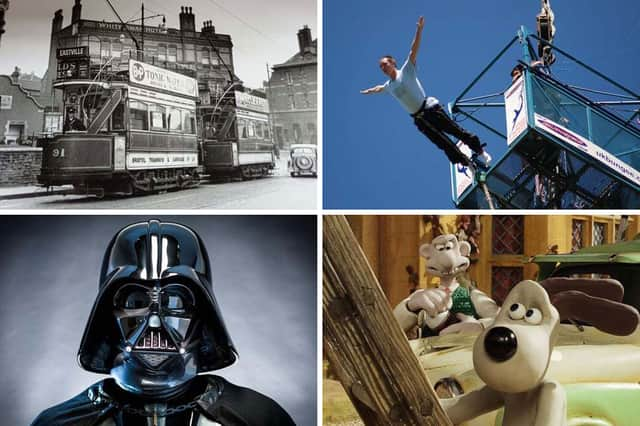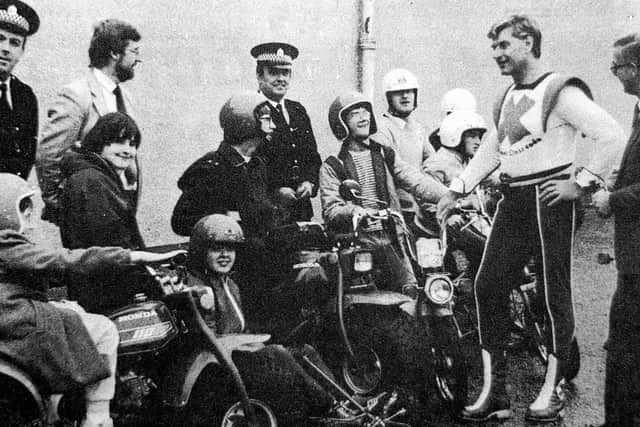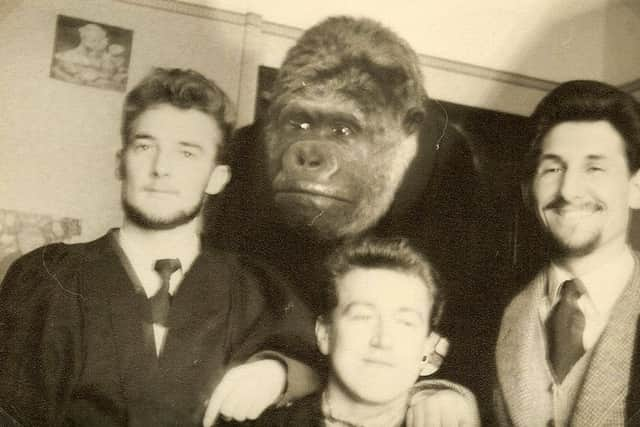Brilliant Bristol: 8 facts about the city that have changed the world


Bristol is a unique city though many of its residents may not be aware of how much it and fellow bristolians have contributed to the world stage. From some of TV’s most iconic characters to everyday items used across the globe - a lot of them come from Brizzle.
To celebrate our city this Christmas, Bristol World has put together a list of eight ways the city has contributed to the world. You may know some of these facts already while others might come as a surprise - regardless, they deserve to be repeated and recognised, so here they are:
Advertisement
Hide AdAdvertisement
Hide AdWorld’s first bungee jump
In at the deep end with this one. Did you know the first bungee jump took place on the Clifton Suspension Bridge? On April 1, 1979, the Oxford University Dangerous Sports Club paid a visit to the South West to carry out the record-breaking stunt - which was illegal at the time. David Kirke, dawning a top hat and tails along with a glass of champagne, was the first person to take the plunge and, for some reason, millions of people have followed in his footsteps.
It is still illegal to bungee jump from the suspension bridge, but the stunt is popular throughout the world after the group’s daredevil antics. The jumpers were arrested afterwards and released on the promise they would not repeat the stunt - a promise they would not keep.
First solid chocolate bar and easter egg in UK
No need to feel guilty if you’ve had one too many chocolates over the Christmas holidays - you’re celebrating Bristol’s heritage! Fry’s Chocolate Company, founded in the city in 1761, is credited with creating the world’s first solid chocolate bar in 1847, under the name of J. S. Fry & Sons in 1822. Fry’s also created the first filled chocolate sweet, Cream Sticks, in 1853 and introduced the UK to the chocolate Easter Egg in 1873 and Turkish Delight in 1914.
The company became a division of Cadbury in the early 20th century as both were founded by Quakers. Fry’s Bristol production stopped in 2010 when its Somerdale Factory was closed after the American food manufacturer, Kraft Foods completed its takeover of Cadbury.
Advertisement
Hide AdAdvertisement
Hide AdDarth Vader was Bristolian
Arguably cinema’s most iconic villain was born in Bristol. David Prowse MBE, who sadly died in 2017, was born in 1935 and attended Bristol Grammar School before going on to have success as an actor, bodybuilder and weightlifter. Before portraying Vader, David became a cult hero with the role of the Green Cross Man in the Green Cross Code road safety public information aimed at children and young people.


Of course, Darth Vader was voiced by American actor, James Earl Jone, but it was David’s 6ft 6 frame captured on film. You can’t help but wonder how iconic it would have been to hear the Supreme Commander utter: “Luke, you are m’babber”.
Ribena was made in Long Ashton
A mainstay in British supermarkets, Ribena was created in 1938 in Bristol after research was carried out at the University of Bristol Agricultural and Horticultural Research Station at Long Ashton. The work has overseen by Bristol-based food and drink company HW Carter and would eventually be named Ribena in a nod to the botanical name of the blackcurrant, Ribes Nigrum, by Mr S. M. Lennox. The drink would also be name-dropped in a Kanye West verse in American Boy.
Bristol Zoo and Alfred
Sadly, earlier this year, Bristol Zoo closed its doors after 186 years in the city. It was founded in July 1835, by Henry Riley, a Bristolian physician, and was the world’s fifth oldest zoo at the time of its closure. In the early 1900s, lions and even a polar bear exhibit would be opened but it was the arrival of a special guest in 1930 which Bristol would remember the most.
Advertisement
Hide AdAdvertisement
Hide Ad

Alfred the Gorilla was the first gorilla to be enclosed in a UK zoo - only one other gorilla was held in a European zoo at the time. He was a hugely popular figure as he learned to make and throw snowballs during the winter and would often be walked around the zoo grounds on a lead. His popularity grew to international fame during the second world war as US soldiers based in the city would frequently visit Alfred, sending postcards back home. He died shortly after the war ended in 1948, aged 20.
IMDb
The online film and TV database many flock to when seeking confirmation on what they should watch next was created in Stoke Gifford by a man called Col Needham. Col founded IMDb, which stands for Internet Movie Database, in 1990, in its early stages it was essentially a collection of his favourite films while he worked as an engineer in Bristol with Hewlett-Packard.
It would gradually evolve into an internet bulletin board with the number of contributors continuing to rise throughout the 90s as the internet grew in popularity. By 1996, Mr Needham had left his job as an engineer to become a full-time employee with IMDb - two years later it would be purchased by Amazon though Col, 55, still heads up the company and lives in Filton.
Aardman
Aardman’s contribution to Bristol is scattered across the city with its much-loved Wallace and Gromit trial. The company was founded by Peter Lord and David Sproxton who moved to Bristol in 1976. They would eventually produce their first professional production, and their first popular character, Morph in the kids’ show Take Hart.
Advertisement
Hide AdAdvertisement
Hide AdThe aforementioned Wallace and Gromit characters were created by Nick Park in 1989. They first appeared in the A Grand Day Out production and would win two Academy Awards for The Wrong Trousers (1993) and A Close Shave (1995). Aardman’s website states that one of its greatest achievements is its involvement in Wallace and Gromit’s Grand Appeal - the official charity for Bristol Children’s Hospital. The Grand Appeal has raised more than £70million since its launch in 1995 and has hosted countless fundraising events across the city.
Electric Trams
There has been some discussions recently regarding the future of public transport in Bristol. An underground system has been proposed as has a tram system, which would not be new to the city. The first trams in Bristol were introduced way back in 1875 - they were horse-drawn and could clock speeds of 6mph. Trams were not new to the UK at the time, having been first used across the border in Swansea in the early 1800s. However, Bristol became the first UK city to have electric trams in 1895. At its peak, Bristol’s tram system consisted of 17 routes across the city with 237 tramcars in use. Throughout the start of the 1900s, the system was slowly phased out and in 1941 it was eradicated completely. Will it return?
Comment Guidelines
National World encourages reader discussion on our stories. User feedback, insights and back-and-forth exchanges add a rich layer of context to reporting. Please review our Community Guidelines before commenting.
